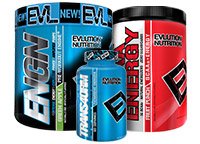
6 Ways Fitness Improves Your Life
The time has come to put random workouts aside! Get serious about fitness and reap benefits that will improve your entire life, from crushing your favorite sports to building instant confidence.
This may sound shocking, but stick with me. I want you to quit going to the gym. Or, more specifically, I want you to quit "going to the gym."
"Going to the gym" is that little routine where we don't really know what we'll do once we get to the gym. It usually means a medley of I-saw-this-guy-doing-this, some that-machine-is-open, some arms, some cardio, some confused lifting, and a round of painful stretching for dessert. Really, the "going" part is the focus.
"Going to the gym" is better than nothing, sure, but it's not the best approach if you want to get the best results and most out of your training time. To do that, you have to get serious about fitness—but don't worry! You don't have to spend endless hours in the gym or give up fun outside the weight room. Far from it.
It's totally possible to get fit, have fun, and reap the rewards. Start by grabbing a sustainable, well-designed program you can stick with like the four-day-a-week "Train Less, Grow More" plan to build muscle, or the three-day-a-week "Work Out Less, Get More Ripped" plan to torch fat. Instead of "going to the gym," just hit your workouts consistently and give them maximum effort. Pretty soon, you'll reap benefits that boost your entire quality of life, not just your performance at the gym.
Here are six ways getting serious about fitness will help you have more fun and improve your entire life!
You'll kick ass at sports, not get your ass kicked
When we were kids, we did a little of everything. Gym class, dodgeball, general monkeying around—they were all part of the same overall onslaught of activity. Then we got a tiny bit older, and we specialized. We pushed hard to excel at the sports we really enjoyed, and we trained strategically to maximize performance and minimize injury from those sports.
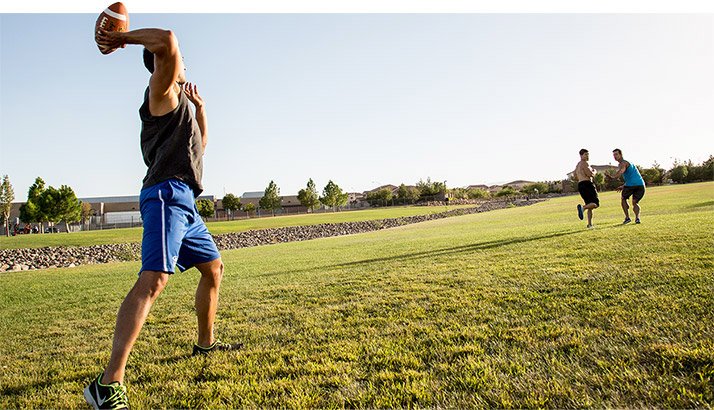
Just kidding! In reality, most of us work hard at our favorite sports and consider that our exercise. What's wrong with this approach? Well, sports are fun as hell, but they also share some unfortunate characteristics with the things our ancestors did before sports were so popular, like fighting to the death or performing manual labor.
These things may have built civilizations, but they didn't leave people feeling better. They left them hunched over, arthritic, and, um, dead. Sports are kinda like that. They beat on certain joints and muscles relentlessly, leave others weak and vulnerable, and value risky behavior over technique.
So let's be absolutely clear: Shooting hoops won't cancel out all the sitting you've been doing. Skating for two hours a day won't make your back stop hurting. Go to the gym and strengthen what's weak, and then show off that new strength during fun time!
You'll get instant muscle-building hormones
High-intensity interval training (HIIT) has been shown in numerous studies to stimulate the release of growth hormone, the big kahuna responsible for accelerating fat metabolism, adding muscle mass, and increasing exercise capacity. Resistance exercise also releases growth hormone into your system, but the amount released is directly related to the intensity of the activity you're doing.
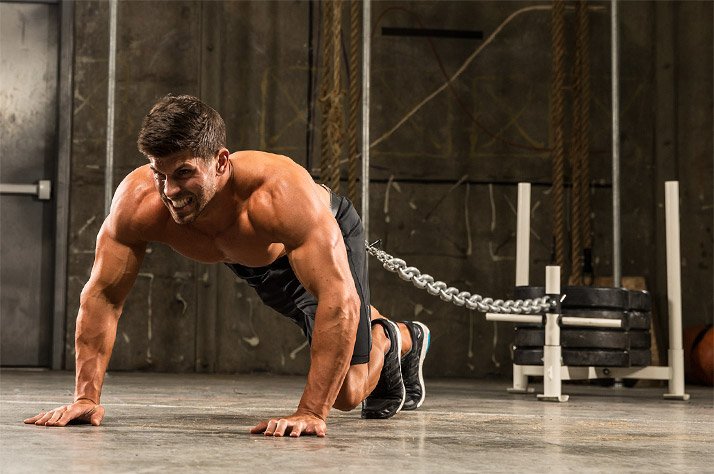
Sounds like we should all head over to the nearest hardcore gym and smash ourselves into a red puddle of pain, right? Well, here's the problem with that. Everything feels intense when you do it either:
- the first time
- with awful technique
- crazed to the point of self-injury
- A, B, and C
In other words, exercise often feels more intense than it actually is when you dive head-first into a new activity. But when you systematically build up your strength, endurance, and coordination? That's when you'll get to know what real intensity feels like. And that's when you'll get those sweet, sweet hormones.
You'll get to eat. And eat. (And eat.)
Doing lots of a full-body movement like squats stimulates far more than muscle growth. It also stimulates appetite like you can't believe. And that's a good thing!
In fact, your metabolism should be raging if you're training hard, shredding up whatever you ingest and putting it to work building your body. The harder you train, the more calories you'll need to keep things progressing, so nosh away. That may sound obvious, but it goes flying right over far too many muscular heads.
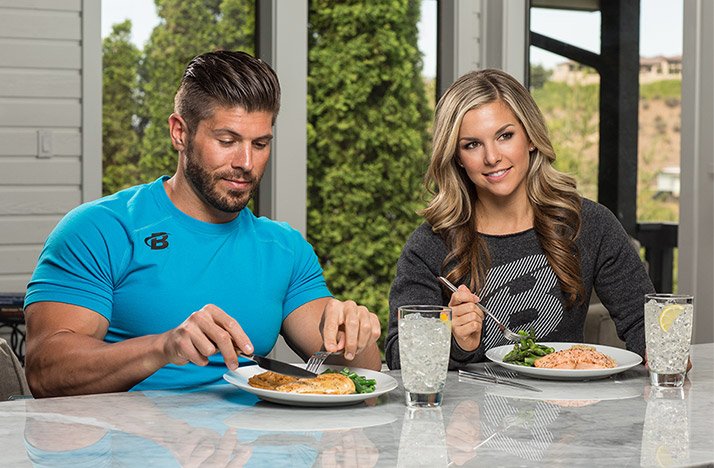
Be mindful—not obsessive, but mindful—of your diet 80 percent of the time, eating healthy, whole, clean foods and learning how prepare them yourself. The other 20 percent of the time, live it up. Go out for a beer with friends, take your best girl or guy for a nice meal, or dive headfirst into that slice of cheesecake with no regrets.
Look at that 20 percent as fuel for your next workout or recovery for your last one. Those extra calories' sole purpose is to make you stronger, faster, and better.
You'll get an instant confidence boost
When you look good, you feel good. But when you look good and can do cool stuff you couldn't do before, you feel better. And by "better," I mean just one thing: more confident.
Confidence in the gym means you're mentally and physically able to push yourself harder, do more, and feel amazing—as opposed to "I'm dying!"—while doing it. Many of us can attest that it carries over to confidence at work, which could mean the difference between getting that promotion and losing it, and confidence in your social life, which means being at ease and secure in your self-worth, attracting higher-quality partners and friends, and having more enjoyable interactions.
In the shorter term, exercise is known to release endorphins, those feel-good chemicals that give you that euphoric feeling of happiness. It also releases serotonin, which improves mood and alleviates depression. Case in point, a study from Duke University showed that people with depression who engaged in regular exercise improved their mood as much as those who were treated only with drugs.1
You'll be ready for anything
So your buddies want to go climb a mountain this weekend. Can you handle it? If that doesn't sound like your buddies, maybe you and your friends get caught in an impromptu bar brawl. Are you ready? Maybe not, but that little bit of extra armor—and extra pushing strength— you've been building can't hurt!
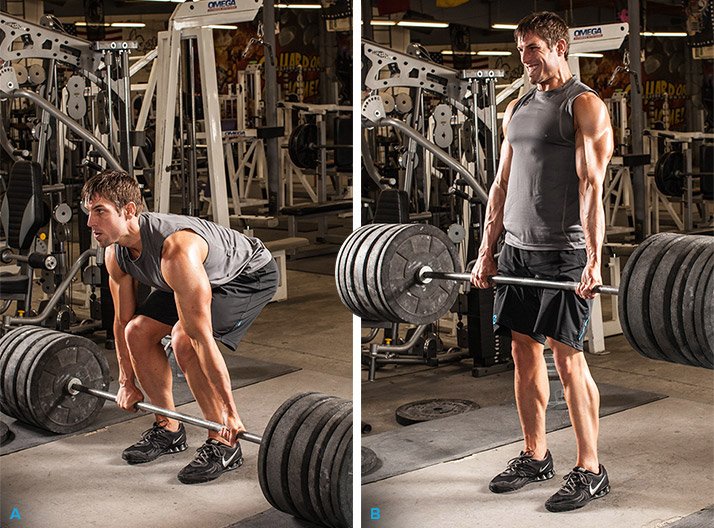
Training hard means you will be more likely to excel at whatever life throws at you. Sharpen this edge further in the gym by programming periodic "tests." One day, do a balls-out 10x10 squat workout. Another day, do track sprints with your training partner. On yet another day, do a 15-minute AMRAP (as many rounds as possible) of 10 burpees, 10 pull-ups, 10 deadlifts, and 10 barbell push-presses.
The more you change things up (within reason), the better your body gets at reacting to curve balls, and the more prepared you'll be for anything and everything.
You'll stick around longer
A study published in PloS Medicine found that being active may lengthen your life by up to seven years.2 That's just exercise, period. Now imagine how much you can extend your life if you spend your time doing high-quality training that leaves you leaner, stronger, more efficient, and more resilient. And then imagine how much more you'll enjoy those extra years if you're healthy and strong!
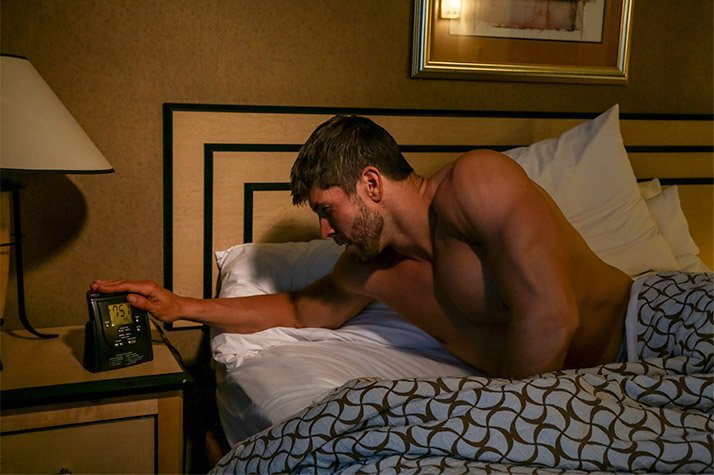
More life, better life. This is the sort of health motivation that can actually change people's long-seated behaviors. So the next time your alarm goes off and you want to smack it across the room, remember this: Your hour of power each morning may add another 420 minutes to your life. Hopefully that'll put the giddy-up back in your britches.
References
- Babyak, M., Blumenthal, J. A., Herman, S., Khatri, P., Doraiswamy, M., Moore, K., ... & Krishnan, K. R. (2000). Exercise treatment for major depression: maintenance of therapeutic benefit at 10 months. Psychosomatic Medicine, 62(5), 633-638.
- Moore, S. C., Patel, A. V., Matthews, C. E., de Gonzalez, A. B., Park, Y., Katki, H. A., ... & Lee, I. M. (2012). Leisure time physical activity of moderate to vigorous intensity and mortality: a large pooled cohort analysis. PLOS Medicine, 9(11).



